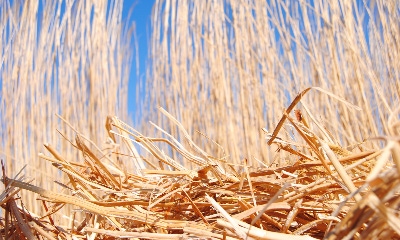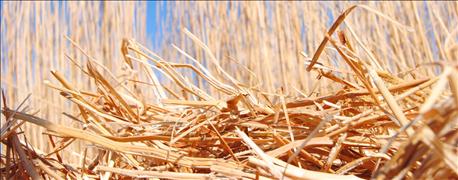
A farmer looking for a crop that requires limited inputs, provides soil conservation and ultimately makes money may want to consider miscanthus.
Missouri Ruralist asked Dustin Dover, Renew Biomass chief operating officer, and Eric Allphin, Renew Biomass director of agriculture to share what farmers can expect when growing miscanthus.
What soil type is best for miscanthus production?
ALLPHIN: Miscanthus really works across the board. It is both drought tolerant and water tolerant. Great attributes for Missouri. Typically, we like it on higher ground that will not flood all of the time. A gently rolling ground is also easier to get across in winter to harvest and it seems to perform well.

MONEY IN MISCANTHUS: Missouri growers are seeing the value of their miscanthus crop rise while other commodities prices decline.
Does a farmer have to plant and harvest the crop?
ALLPHIN: Renew Biomass plants the rhizomes for farmers in the spring. It takes special equipment that many farmers do not have on hand. All of the rhizomes grown for our company come from one source--New Energy Farms in Georgia. It is an Illinois clone of miscanthus giganteus. This rhizome is cold tolerant and works best here in Missouri.
We only have 4 out of 100 farmers that actually harvest their own crop. Miscanthus is hard to bale and the equipment used to bale it is a huge investment. We prefer farmers do not harvest their own crop. There bale specifications that are required by our end market. It is important that we have bale consistency.
DOVER: Our model is vertical integration, much like you see in the turkey industry. We do the planting, harvesting, storing and transportation of the crop. By us controlling the work, we can set cost and control all the inputs. If we can control costs, we can pass that savings on to the farmer and pay them more.
How does miscanthus conserve soil?
ALLPHIN: Farmers are conscious about saving the soil. Certain areas with highly erodible land should not be sown into row crops. Miscanthus is a perennial crop with a deep root system that will hold the soil in place year after year.
~~~PAGE_BREAK_HERE~~~
What type of nutrient management is required?
ALLPHIN: We will work with the farmer on nutrient management to improve soils and production when a field has lower fertility. Miscanthus like many other grasses likes nitrogen. We have found it yields best with 60 pounds of nitrogen, 30 pounds of phosphorus, 160 lbs. of potassium per acre with a pH above 5.5. We do ask that our farmers take a soil sample every couple of years to see if there are any nutrient issues in the field. It is important to keep the soil healthy, however, we have seen poor soils without fertilizer push yields and make money.
How much will the crop produce?
ALLPHIN: We had increases in production across the board this year. We are seeing farms with averages of 7-8 tons per acre. In Missouri, some farmers are yielding 10 tons per acre. A couple of two-year-old stands are already producing 6.5 tons, which is great at this stage.
Crop production will likely hit a plateau in years 4 or 5.
Some factors that affect yield are wetter than normal or drier than normal years. Famers may see a 1-to-2-ton difference; however, it is not like a crop failure. Farmers are not questioning if they have a crop or not. They will have a crop with miscanthus.
What is the market for miscanthus?
DOVER: Farmers should have a contract before growing miscanthus on their farm. Currently miscanthus is not traded on the open market. We work to identify various markets. We mill our product made to order for clients. Renew Biomass works with the pet food and animal health industries in the areas of fiber, pharmaceuticals and vitamin carriers.
Is Renew Biomass looking for more growers?
DOVER: We have roughly 4,000 acres of miscanthus in Missouri all on a contract basis with local farmers. We have already renewed with our current farmers for this year. Most of those contracts are on year 5- or 7-year basis, some even longer. However, if the farmer is right and the ground is right there may be an opportunity. They can visit mfiber.net to learn more and contact our office.
I believe that the miscanthus market as an all-natural pet fiber ingredient will expand beyond our past production. In 5-10 years, I believe we will have more locally sourced miscanthus in Missouri. We are working on research to see how miscanthus can work in the human market as well.
About the Author(s)
You May Also Like






